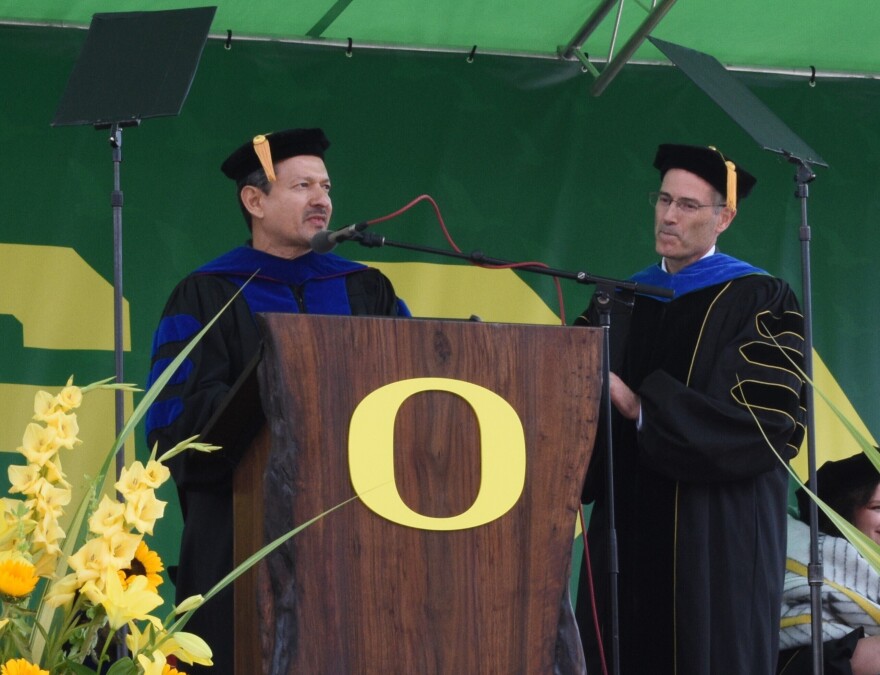The Oregon Government Ethics Commission has several active cases in western Oregon. But what does the commission do, and what penalties does it hand out? KLCC’s Karen Richards spoke with Casey Fenstermaker, the Compliance and Enforcement Coordinator at the commission. Fenstermaker said the agency has jurisdiction over Oregon government ethics laws, public meetings law, and lobbying regulations.
Casey Fenstermaker: What we do is, we are a complaint-based organization on the enforcement side. That means that citizens or other public officials can reach out and file a complaint regarding a public official or a lobbyist.
Karen Richards: How do you decide whether to move forward with a complaint. Does every complaint get followed up on?
Fenstermaker: With ethics, it has to be that the complaint alleges that a public official is doing something in violation of one of the ethics statutes, and that it occurred within the past four years, because that's our look-back period. If it's public meetings law, we’re looking to see whether or not the person waited the 21 days or waited to get a response from the public body or governing body that they filed the grievance against, so the statutory prerequisites, we can't open a case unless those are met.
Richards: One case that’s been accepted involves the former dean of the University of Oregon School of Journalism and Communication, Juan-Carlos Molleda. What happens next with that?
Fenstermaker: That preliminary review period lasts 60 days. So that means we have 60 days to conduct kind of a cursory review of the complaint. Once the commission hears both the investigator’s side and if the respondent chooses to speak, the respondent’s side, they discuss and then vote. They can vote to dismiss, or they can vote to move the case to investigation.
Richards: There are a couple of complaints involving the Waldport City Council that are currently under investigation. What happens in that step?
Fenstermaker: Once the case is moved to the investigation phase, the commission staff has 180 days to get it back before the commission for action. However, most cases don't make it even to the investigation report stage, because what happens a lot of times is the person agrees that they, in fact, violated the law. In a report, we would either recommend dismissal, or it could be a preliminary finding of a violation of one of our laws. And then the commission votes whether or not to agree with the recommendation.
Richards: What do the possible outcomes look like?
Fenstermaker: The lowest penalty is a letter of education, wherein we write an explanation of, like, here's what happened, here's what should have happened, and here's how to handle similar situations going forward and here are some of the resources available to you. Otherwise there are monetary penalties that range from 1% to 20% of the maximum civil penalty which is $5,000 for an ethics violation, and it goes up to 80% to 100% of the maximum civil penalty for each violation.
Richards: An ethics case was dismissed recently against former Lane County Administrator Liane Richardson. That case was from 2013. Why did it take so long to resolve?
Fenstermaker: We have 180 days in an investigation period. Sometimes what happens, and it's certainly what happened in the Liane Richardson case, is with the agreement of the parties, cases can be time-waived while the parties negotiate.
Richards: Are you seeing any trends in terms of number of complaints or the types of complaints you’re receiving?
Fenstermaker: The number of complaints has gone up significantly, even from last year, there was a huge jump. That was in part because last year was the first year that we had the enforcement of public meetings law as a whole, not just executive sessions. And then that trend, I think, has continued. The numbers don't just reflect public meeting law complaints, they also reflect lobbying complaints and ethics complaints.
This transcript has been edited for clarity.



